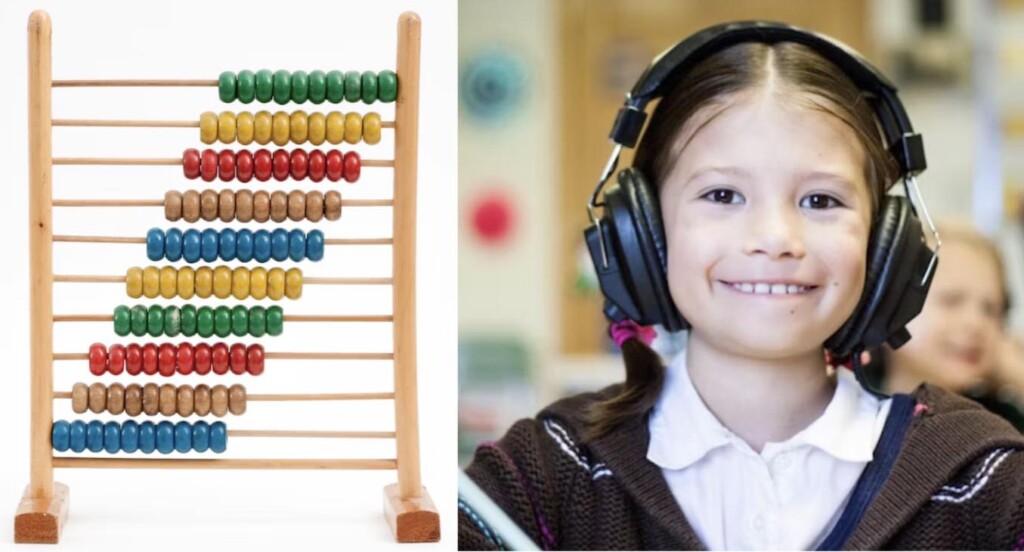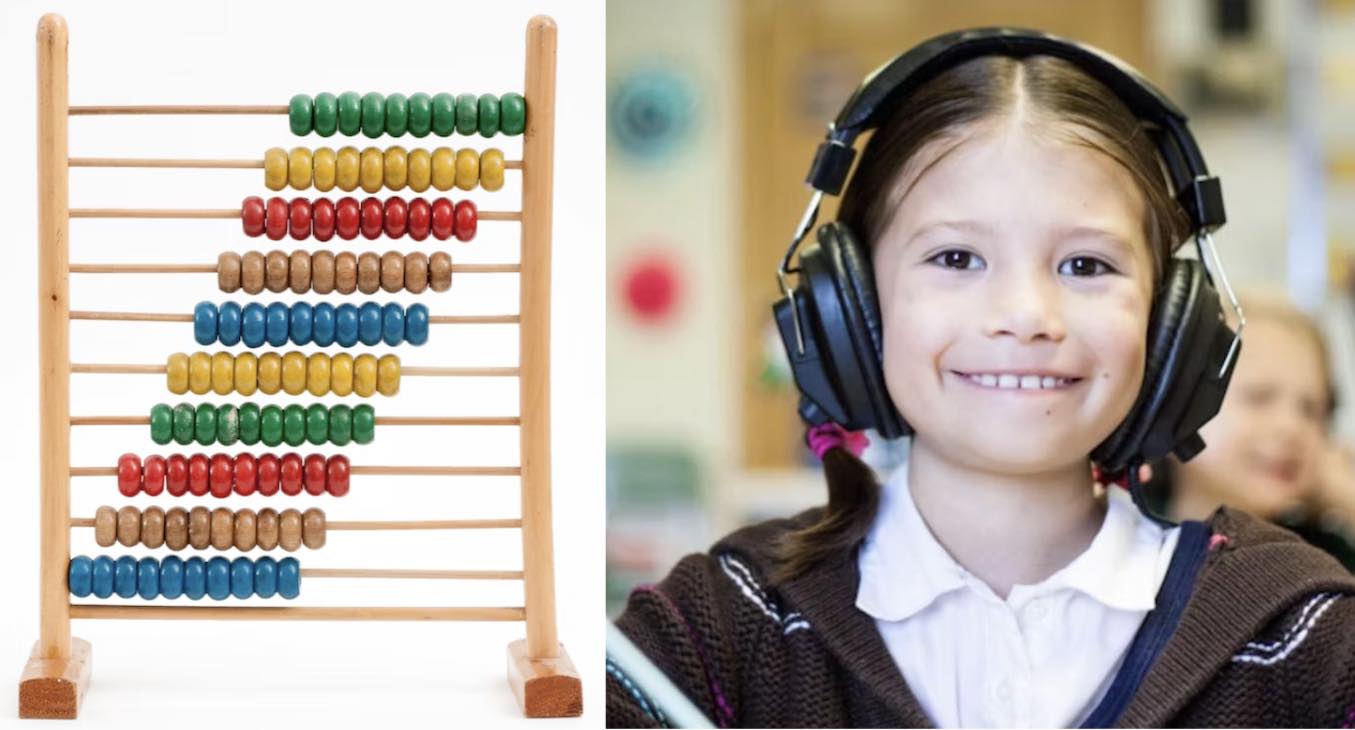
A new study explored the causal role that music engagement has on student achievement in mathematics—and they found a significant benefit.
Researchers believe that music can make math more enjoyable, keep students engaged, and help ease their fear or anxiety about topics like fractions. The addition of music may even motivate kids to appreciate math and want to learn more.
A typical technique for integrating music into math lessons for young children involves clapping to songs with different rhythms learning numbers, and equating fractions to musical notes.
The new meta-analysis published in the journal Educational Studies analyzed 55 studies from around the world, involving almost 78,000 students, from kindergarten to university age.
Three types of musical interventions were included: typical music lessons in which children sing, listen to, and learn about composing music; learning how to play instruments alone or as part of a band; and music-math integrated interventions, where music was integrated into math lessons.
Students took math tests before and after taking part in the intervention, and the change in their scores was compared with those who didn’t take part in any intervention.
The use of music—whether in separate lessons or as part of math classes—caused a greater improvement in math over time.
Combining both in the same lessons had the most significant effect, with around 73 percent of students who had integrated lessons doing significantly better than children who didn’t have any type of musical intervention.
Also, 69 percent of students who learned how to play instruments and 58 percent of students who had normal music lessons improved more than pupils with no musical intervention.
The results also revealed that music helps more with learning arithmetic than other types of math and has a bigger impact on younger pupils and those learning basic mathematical concepts.
Math and music have much in common, such as the use of symbols and symmetry. Both subjects also require abstract thought and quantitative reasoning.
Arithmetic may lend itself particularly well to being taught through music because core concepts, such as fractions and ratios, are also fundamental to music.
Musical notes of different lengths can be represented as fractions and added together to create several bars of music.
Integrated lessons may be especially effective because they allow pupils to build connections between the math and music and provide extra opportunities to explore, interpret and understand math.
“Encouraging mathematics and music teachers to plan lessons together could help ease students’ anxiety about mathematics, while also boosting achievement,” said Dr. Ayça Akın, from the department of software engineering at Antalya Belek University, Turkey.
LOOK: Mathematicians Discover Elusive ‘Einstein’ Shape: ‘The Miracle that Disrupts Order’
However, she said there were limitations to the study. The relatively small number of studies done meant it wasn’t possible to look at the effect of variables such as gender, socio-economic status, and duration of musical instruction upon the results.
MULTIPLY The Number of Teachers Seeing This By Sharing it on Social Media…




















